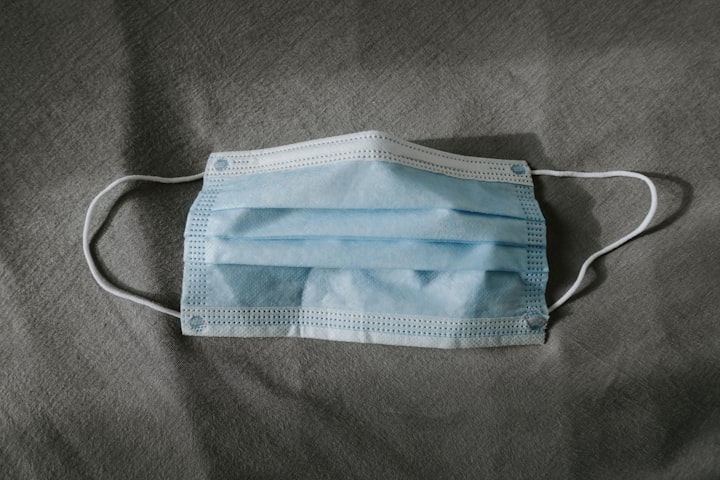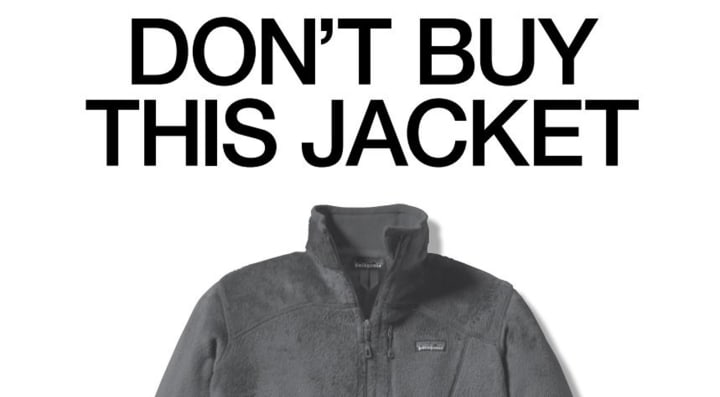The Case Against Disposable
Why Disposable Fashion is bad for the planet

“We understand how dangerous a mask can be. We all become what we pretend to be’’ — Patrick Rothfuss
2020 brought an unexpected fashion trend with it. Masks. No one could have imagined that face masks would be a thing on this scale.
What started as a need, become a fashion statement quickly. New and trendy masks are coming online every day on Etsy, Redbubble, and other e-commerce sites.
People are even voicing their political opinions through masks.

While some find them cool, it has become a symbol of uncertainty. It reminds us that the pandemic is here to stay and hides the humanizing components of us i.e. our smiles.
While the world is talking about climate change and pollution, a major pollutant has emerged since the beginning of the pandemic. Disposable masks.
They can be seen littering in the streets or even washing ashore on the coastline.
This new disposable fashion has created a major challenge for the already suffering marine life. Now masks and latex gloves have even began to appear in sea beds.
Before the pandemic started, there were more than 13 million tonnes of plastic going to the ocean. This figure is expected to grow higher due to the pandemic.
The world was already suffering from the problem of plastic waste, but the pandemic has started to add fuel to the fire.
Although these masks are made up of plastics, factors like possible contamination from saliva and nasal discharge make it impractical to recycle them. Similar to other plastic wastes, it takes them more than four hundred years to decompose into microplastics.
Recently a French firm named Plaxtil found a way of recycling these single-use masks safely. Yet their worldwide adoption may take years, or even a decade.
The fashion industry is already notorious for adding its major contribution to global waste.
With the boom of the internet era, buying clothes has never been easier.
With buying so easily accessible, just a few clicks away, people are buying more and more items, but they are wearing them less often.
One of the major challenges with "fast fashion" is that the majority of purchased items are discarded within few months.
These discarded items end up in landfills. More than 500,000 tonnes of discarded clothing items are exported from US every year, a significant chunk of which ends up in landfills. In Britain, more than 300,000 tonnes of clothes end up in landfills every year.
Masks are the latest addition to the fast fashion industry. People are buying and discarding them more often amid safety concerns. The single-use masks are generally recommended to be used for a maximum period of 6 hours, and they are being consumed at an unprecedented rate.
The one thing that environmentalists and scientists claimed alike was that the slowing down of world economy would be good for the environment.
Although they were partially true about these things as carbon emissions had gone down significantly worldwide, yet no one could have predicted the massive amount of COVID waste that is being generated during the pandemic.
The world economy struggles to adjust to the new normal, as the wider impact on the environment has started to become apparent. Countries like Spain and Hongkong have seen worsening of the already prominent plastic problem, as due to the fear of infection people are buying more and more plastic-wrapped items. Recently, a study by a marine conservationist organization PROMAR found that the amount of microplastics in ocean water has increased significantly. These are more dangerous as they pass through the food chain using fish as a medium. People swimming in these water bodies absorb it through their skin. Most of the disposable items are bad for the environment
In 2011, a clothing brand named Petagonia shocked the fashion industry with an unexpected newspaper ad named "Don't buy this jacket". It addressed the issue of the footprint of fashion industry on the environment and asked people to use clothing items in a more sustainable way.

Sustainability is a two way road, and it is not possible until large corporations as well as people both take the necessary steps. For a world to be a better place for everyone, It needs more corporations like Petagonia and Plaxtir.
The disposable fashion has caused a lot to the planet, and it is the trend that we need to say goodbye to as soon as possible.
About the Creator
Kunal Verma
Freelance Writer | Mechanical Engineer | Tea Fanatic






Comments
There are no comments for this story
Be the first to respond and start the conversation.